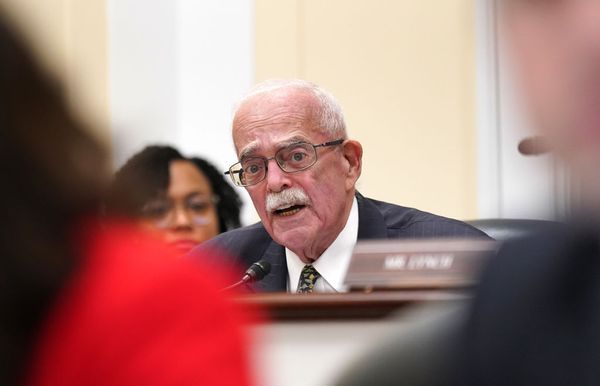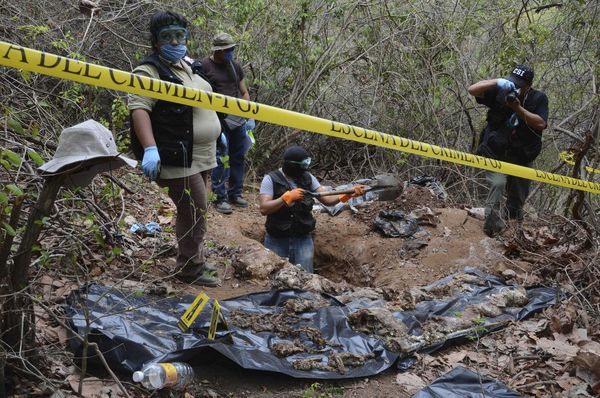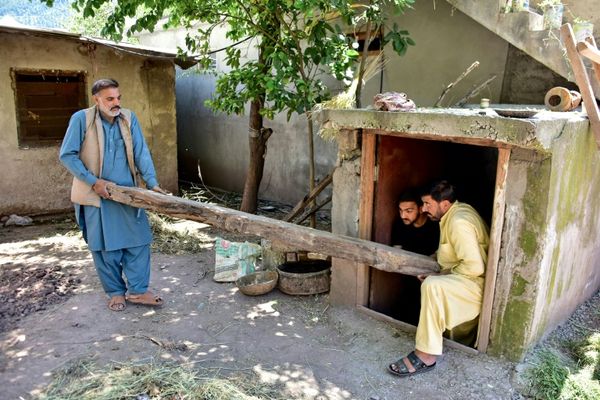AMID the grey gloom of a dreich Scottish January, it’s hard to see any rays of light but there are reasons to be cheerful in 2024.
There are plenty of major events to look forward to in the coming months which will see Scotland take its place on the world stage and there’s also a rich programme of smaller but still significant celebrations on the domestic scene.
First up is the National Cyclo-Cross Championships which are to be held for the first time in Scotland at Falkirk’s Callendar Park, home to the 14th-century Callendar House. The championships will take place next weekend (January 13 –14).
This will be quickly followed by Celtic Connections, the annual folk, roots and world music festival which celebrates connections to cultures across the globe. From January 18 to February 4, more than 2100 musicians from around the world will bring Glasgow to life with concerts, ceilidhs, talks, art exhibitions, workshops and free events for visitors and locals alike to enjoy.
January also sees a rare exhibition of recently discovered textiles by the iconic pop artist Andy Warhol (below). They are being shown in the renowned Dovecot Studios in Edinburgh from January 26 until May 18. Andy Warhol: The Textiles will showcase more than 60 textile works, featuring fabric lengths, garments, prints, film and photography demonstrating how textile and fashion design were a crucial element in Warhol’s success.
Another important date in January is the 25th, when Burns Suppers will take place throughout Scotland celebrating the birth of the National Bard. Celebrate with haggis, neeps, tatties and a dram and learn a few lines to raise a smile. It’s hard to stay gloomy when you hear: “Ah, Tam! Ah, Tam! thou’ll get thy fairin! In hell they’ll roast thee like a herrin!”
In February the focus is on Manipulate, the international festival of animated film, puppetry, and visual theatre in Edinburgh. It will again celebrate international and homegrown work with live performance, screenings, and workshops in venues across the city.
Performances include an acrobatic Thomas Hardy adaptation and a farcical robotic dinner service party with an existential pickle. The festival runs from February 1-11.
March begins with the World Athletics Indoor Championships taking place in Glasgow, the biggest indoor athletics championships in the world. It comes five years after the city hosted the hugely successful European Athletics Indoor Championships in 2019 and 10 years on from the 2014 Commonwealth Games.
From March 1-3, the Emirates Arena will see many of the best athletes in the world competing for prestigious World Indoor titles. Up to 650 competitors from more than 130 countries are expected to take part, competing in 26 events. Scottish stars to look out for include Laura Muir, Jemma Reekie, and Neil Gourley.
There are world championships of a different kind in Moray when the Cullen Skink World Championships take place in Cullen on March 17. The soup, traditionally made of smoked haddock, potatoes and onions, takes its name from the town of Cullen which will host two events – the Traditional Cullen Skink competition and Cullen Skink with a Twist competition. Spectators are welcome at both.

Also scheduled for March is the opening of The Wyllieum, a new art gallery inspired by the extraordinary artist George Wyllie (1921–2012) who lived most of his life in Inverclyde. The Wyllieum will form a major part of the new multi-million-pound Ocean Terminal in Greenock’s Cultural Quarter.
In keeping with Wyllie’s art, The Wyllieum is intended to be a free, welcoming space of inspiration and invention, posing serious questions through playful creativity.
Wyllie’s breakthrough artwork was his 1987 Straw Locomotive sculpture suspended from the Finnieston Crane in Glasgow then taken to Springburn (once the site of locomotive manufacturing) and set on fire by Wyllie, revealing a large question mark at its centre. A requiem for the decline of the Scottish engineering and shipbuilding industries, the artwork set Wyllie’s tone.
Two years later Wyllie created a 78ft-long origami boat which went on to tour the world and even featured on the front page of The Wall Street Journal under the headline “Laugh You May, But Remember It’s Floating and the Titanic Isn’t”.
The new Perth Museum will open its doors on Easter weekend after a £26.5 million redevelopment project. Star attractions will include the 3000-year-old Carpow Logboat and the Stone of Destiny, one of Scotland’s most significant historical objects. An ancient symbol of Scotland’s monarchy that was used to crown Scottish kings, it is returning to Perthshire for the first time in more than 700 years and will be free to view as the centrepiece of the museum.
The Scottish Crannog Centre (below) is currently building a new museum on the north side of Loch Tay in Perthshire which is set to open this spring after the previous one burned down in 2021. The new visitor centre will showcase internationally significant archaeological collections, an Iron Age-inspired village of craft and technology demonstrations and the first of three expert-led, but community-built, crannogs.
This year, the amazing Kelpies, created by artist Andy Scott, turn 10 years old and an event on April 27 will celebrate their birthday. Standing at 100ft tall and weighing more than 300 tonnes each, the Kelpies, located within Falkirk’s Helix Park, are the largest equine sculptures in the world.
On April 27, visitors can enjoy street theatre, storytellers and artists who will create a vibrant and colourful scene to experience alongside the spectacular sculptures, culminating in a big family ceilidh, pipe band demonstrations, with a specially invited guestlist of Clydesdale horses to mark the breed’s significant contribution to Scotland’s industrial heritage and inspiration for Andy Scott’s masterpiece. The day of celebration will be followed by a concert in the evening.
In May, the National Theatre of Scotland’s adaptation of the Scottish classic Maggie And Me will begin a tour of Scotland based on the memoir by Damian Barr. It follows young Damian growing up in North Lanarkshire as he grapples with pain and joy, coming of age and coming out – and Maggie Thatcher.
Excitement mixed with cosmic fear is probably the sensible outlook for Scots as the Euros approach in June. Scotland are set to face hosts Germany in the showpiece opener in Munich on June 14 before taking on Switzerland in Cologne on June 19 and Hungary in Stuttgart on June 23.
Scotland have played Germany 17 times since they first met nearly a century ago in 1929, Scotland winning four times, drawing five and being on the wrong end of the scoreline on eight occasions. The two sides last met in qualification for Euro 2016 resulting in a 3-2 loss for Scotland at Hampden Park.
When Scotland last played Hungary, they walked away from Budapest with a 1-0 victory thanks to Matt Phillips’s first goal for Scotland. The two nations have faced each other on nine occasions in the past, with Hungary holding the edge with four wins to Scotland’s three, albeit the two nations have never faced each other in a competitive fixture.
The last time Scotland faced Switzerland in a competitive match was also at the Euros in 1996, when a wonder goal from Ally McCoist gave Scotland a 1-0 victory in the final group stage match. Scotland enjoy a winning record against the Swiss, with eight victories, five losses and three draws since they first met in 1931.
There’s more sport in July when the Sprint World Orienteering Championships take place in Edinburgh from July 12-16. Five days of racing – for everyone from elite athletes to complete beginners – will showcase orienteering and allow people of all abilities to enjoy a world-class sport in a world-class city.
From July 14-21, the 152nd Open will take place at Royal Troon. Its Old Course was founded in 1878, expanded to 18 holes 10 years later and re-designed by five-time champion golfer James Braid ahead of its first Open in 1923.
The championship will be followed by the AIG Women’s Open at St Andrews – the home of golf – between August 21-25. It will be the third time the town’s iconic Old Course will have staged the prestigious championship.
The Paris Olympics opening ceremony is on July 26 although the competitions for football and rugby will begin two days earlier, with the handball tournament taking place on the 25th. In a little more than three weeks, 329 events in 32 sports will be held. The only sport making its debut at this Olympics is breaking, when competitors will use a combination of moves and improvise to the beat of the DJ’s tracks.
July also sees the 750th anniversary of the birth of King Robert the Bruce. On the day of his birthday, July 11, Maybole in Ayrshire – near where Robert the Bruce is said to have been born – will host the Robert the Bruce Heritage Day which promises medieval fun for the whole family. People can also follow in the footsteps of one of Scotland’s most famous kings by exploring the Robert the Bruce Trail in the South of Scotland or other locations connected to him such as Scone Palace and Dunfermline Abbey.
Last but not least, November sees the 10th anniversary of The National, which began publication on November 24, 2014, and was the first daily newspaper – and is still the only daily newspaper – in Scotland to support Scottish independence.
A response to calls for a pro-independence paper in the wake of the 2014 indyref, it was edited by Richard Walker and launched on a five-day trial basis against the backdrop of a general decline in newspaper sales.
The initial print run of 60,000 copies for its first edition was increased the following day as a result of public demand and owners Newsquest decided to print it on a permanent basis after healthy sales continued throughout the first week.
Sister paper the Sunday National was launched by Walker in September 2018.







